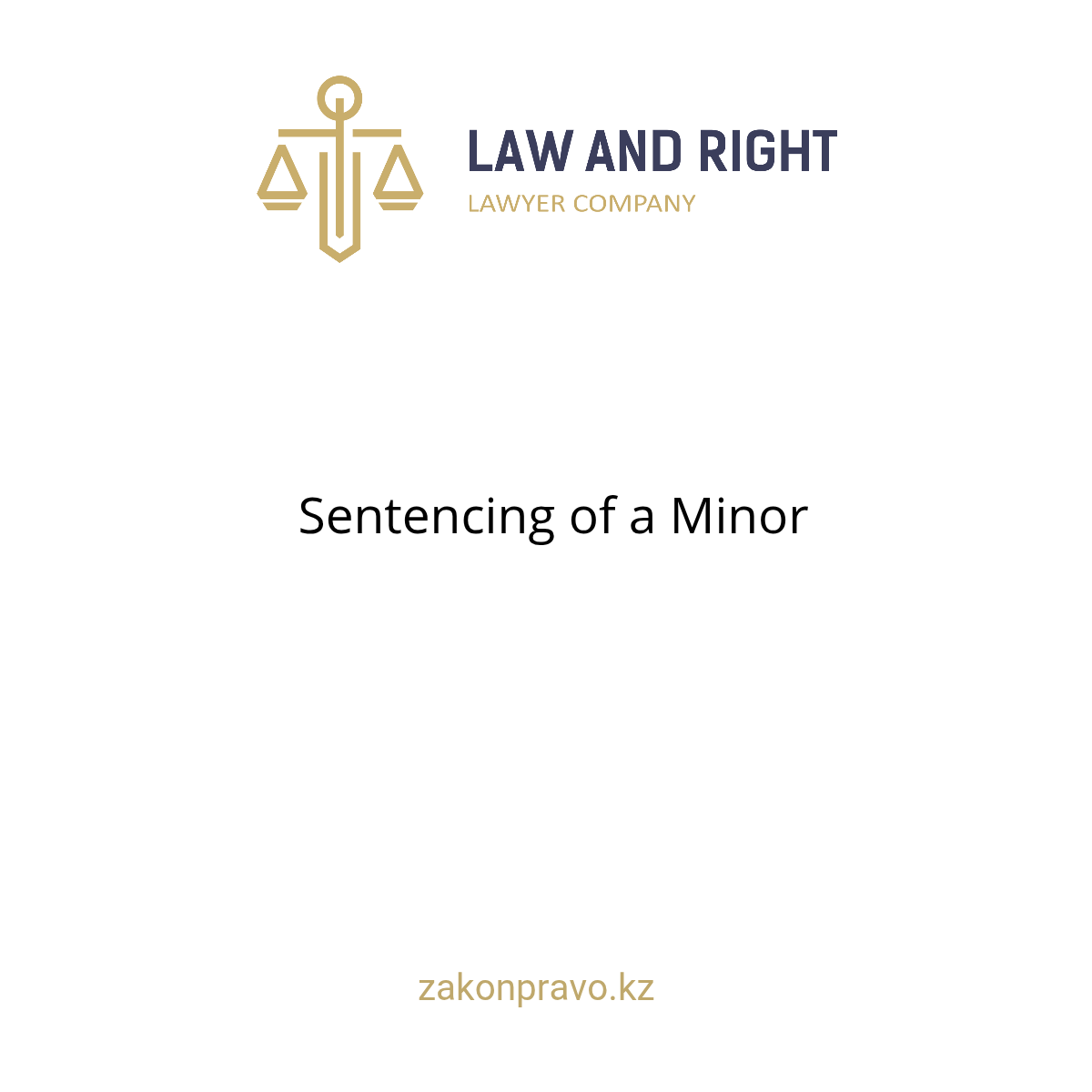Sentencing of a Minor
Legal Commentary on Article 82 of the Criminal Code of the Republic of Kazakhstan: "Sentencing of a Minor"
1. General Characteristics of the Article
Article 82 of the Criminal Code of the Republic of Kazakhstan outlines the specific features of sentencing minors, emphasizing a comprehensive assessment of the juvenile’s personality, as well as their social and psychological vulnerability. It establishes an important principle: minority as a special legal status requires an individualized approach in the selection of punishment.
This provision reflects the humanistic orientation of criminal law and aligns with international standards in the field of children's rights (Convention on the Rights of the Child, Beijing Rules, Havana Rules, etc.).
2. Legal Analysis by Article Sections
Part 1: Individualization of Punishment
When sentencing a minor, the court considers the following:
- Living and upbringing conditions (e.g., presence or absence of parents, orphanhood, guardianship);
- Level of mental development (it is important to determine whether the minor could fully understand the nature and consequences of the act);
- Personality traits (character, tendency to imitate others, predisposition to offenses);
- Influence of older individuals (emphasis on potential manipulation or incitement by adults).
This highlights that punishment should not only serve as a sanction but also as a means of correction, taking into account educational objectives.
Example from Case Law:
- In case No. 3344/2022, a minor participated in a group theft. The court found that the juvenile acted under the influence of an older relative and imposed compulsory educational measures instead of imprisonment.
Part 2: Minority as a Mitigating Circumstance
According to Article 53 of the Criminal Code, being a minor is considered a mitigating circumstance but is evaluated alongside others, such as:
- Sincere remorse;
- Active cooperation with the investigation;
- Voluntary compensation for damages;
- Influence from adults, etc.
Judicial Practice:
- In the practice of the Supreme Court of Kazakhstan (case No. 2033/20), a juvenile involved in illegal drug trafficking was sentenced without deprivation of liberty. The court noted the minor’s sincere remorse, positive school characteristics, and the fact of being underage.
3. Related Provisions
- Article 52 of the Criminal Code – General principles of sentencing;
- Article 81 of the Criminal Code – Types of punishments applicable to minors;
- Articles 83–89 of the Criminal Code – Release from punishment, substitution, deferral, etc.;
- Articles 79–85 of the Penal Enforcement Code – Enforcement of penalties for minors;
- Education Code of Kazakhstan – Applied in determining educational load and reformatory regime.
4. International Standards
- UN Convention on the Rights of the Child (Article 40) – Guarantees every child the right to humane treatment within the juvenile justice system;
- UN Beijing Rules (1985) – Require an individualized approach and minimization of punitive elements;
- UN Havana Rules (1990) – Set standards for the treatment of juveniles deprived of liberty.
5. Conclusion
Article 82 of the Criminal Code of Kazakhstan emphasizes the priority of rehabilitation and education when sentencing a minor. The court must assess not only the fact of the offense but also the juvenile’s personality, environment, and level of awareness of their actions. This approach ensures the protection of minors' rights and aligns with both domestic legislation and Kazakhstan’s international obligations in the field of child protection.
Attention!
Law and Law Law Law draws your attention to the fact that this document is basic and does not always meet the requirements of a particular situation. Our lawyers are ready to assist you in legal advice, drawing up any legal document suitable for your situation.
For more information, please contact a Lawyer / Attorney by phone: +7 (708) 971-78-58; +7 (700) 978 5755, +7 (700) 978 5085.
Attorney at Law Almaty Lawyer Legal Services Legal Advice Civil Criminal Administrative Cases Disputes Protection Arbitration Law Firm Kazakhstan Law Office Court Cases


